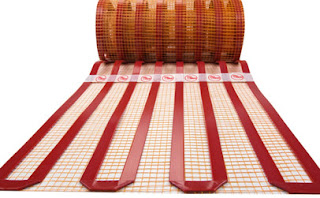Get Your Home Warm With The Best Floor Heating System
The "wet" hydraulic version is usually used for new construction, while the "dry" version and electrical systems are best for renovations.
For wet systems, the lines are in the tirade
while in dry systems, the lines are in the wood planks to act as an intensity
guide.
Now that you know a smidgen of the specialized
side of in-floor heating, now is the ideal time to investigate the confusion encompassing it.
 |
| Floor Heating System |
Underfloor heating is a better option
In the early days of heated floors, the room temperature could reach
more than 35 degrees Celsius, which could cause your feet to swell. In any
case, with the ongoing frameworks today, these circumstances do not happen any
longer, particularly assuming your home is very much protected. As a matter of
fact, brushing floor heating system with an intensity siphon permits the framework
to give cooling, which is in addition to in the blistering mid-year months.
It is bad for your health to have underfloor
heating because it stops dust from moving around, which can make you sick or
allergic. Additionally, homeowners can take advantage of higher humidity and a
cleaner environment free of mold and dust mites, which is especially beneficial
for individuals who suffer from allergies or respiratory issues.
Conclusion
Underfloor heating and parquet cannot be
combined, but if certain considerations are made, they can be combined easily.
You should be good to go if you have a stable, humidity-resistant type of wood
and a multilayer version with planks up to 15 cm wide!


.jpg)
Comments
Post a Comment